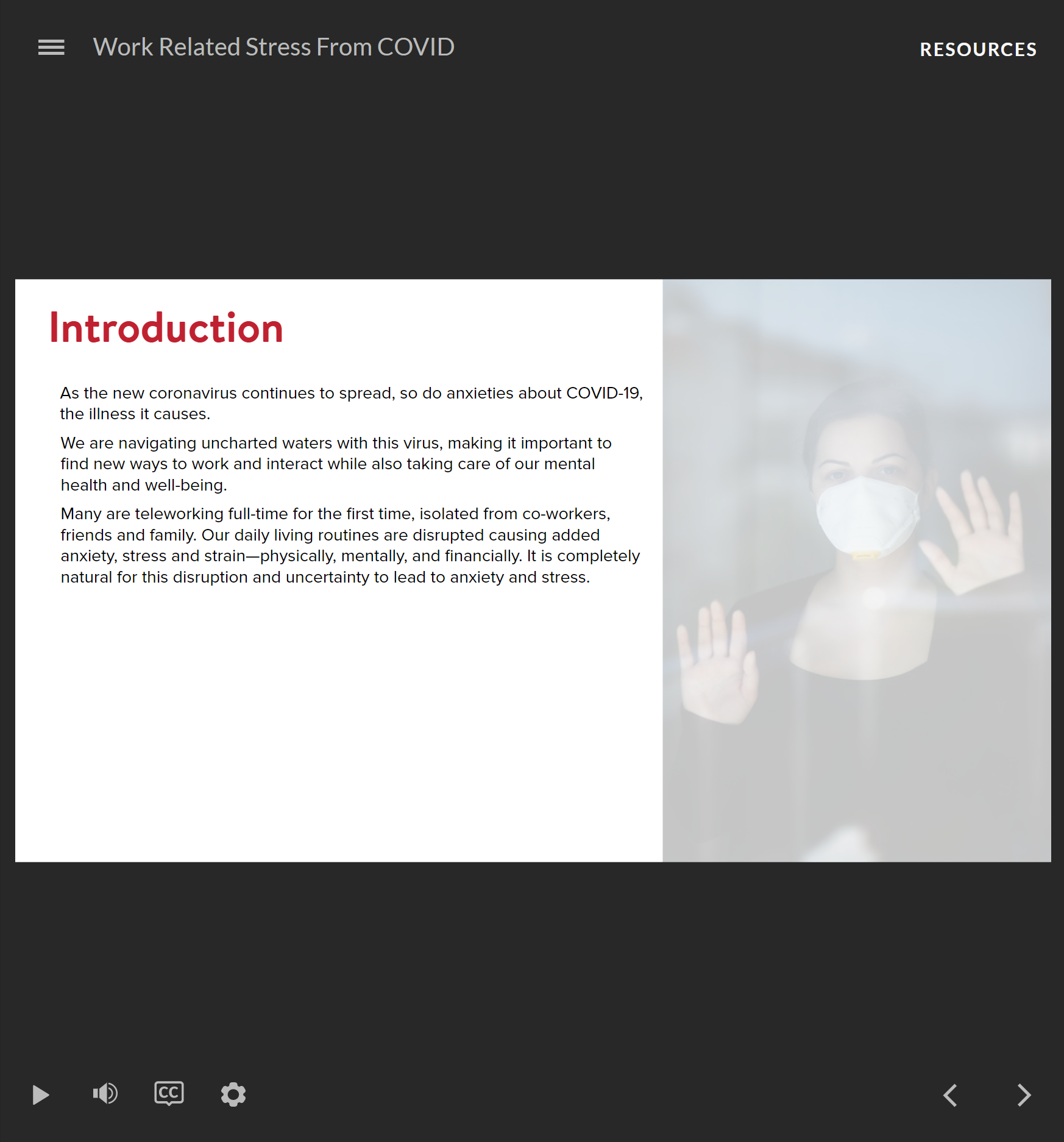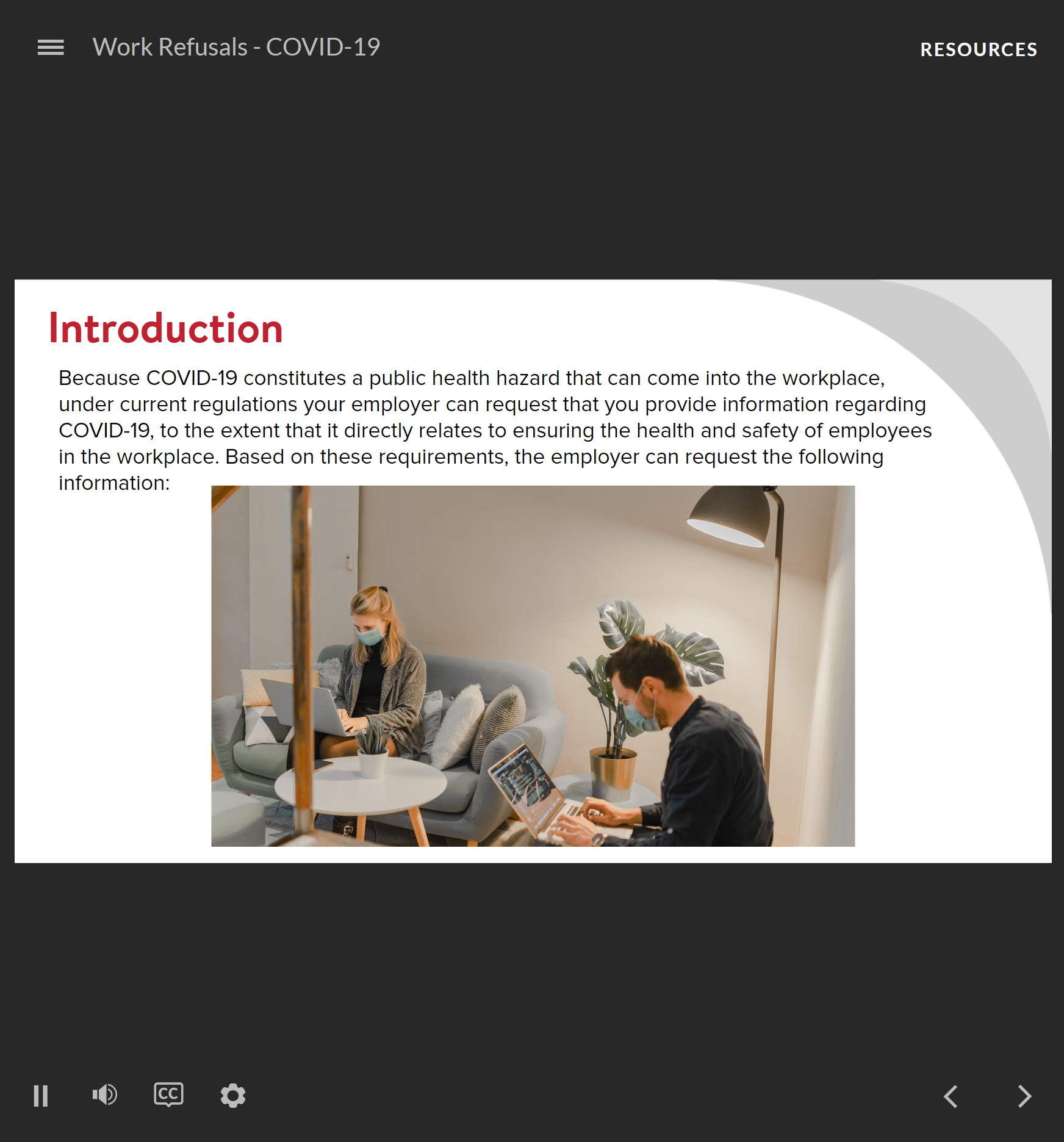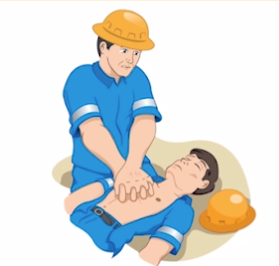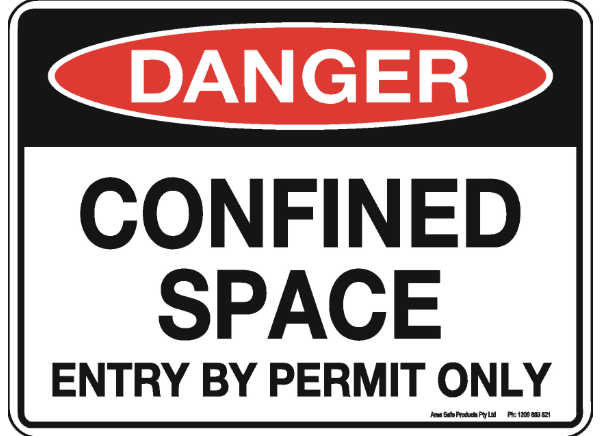-
Sale!
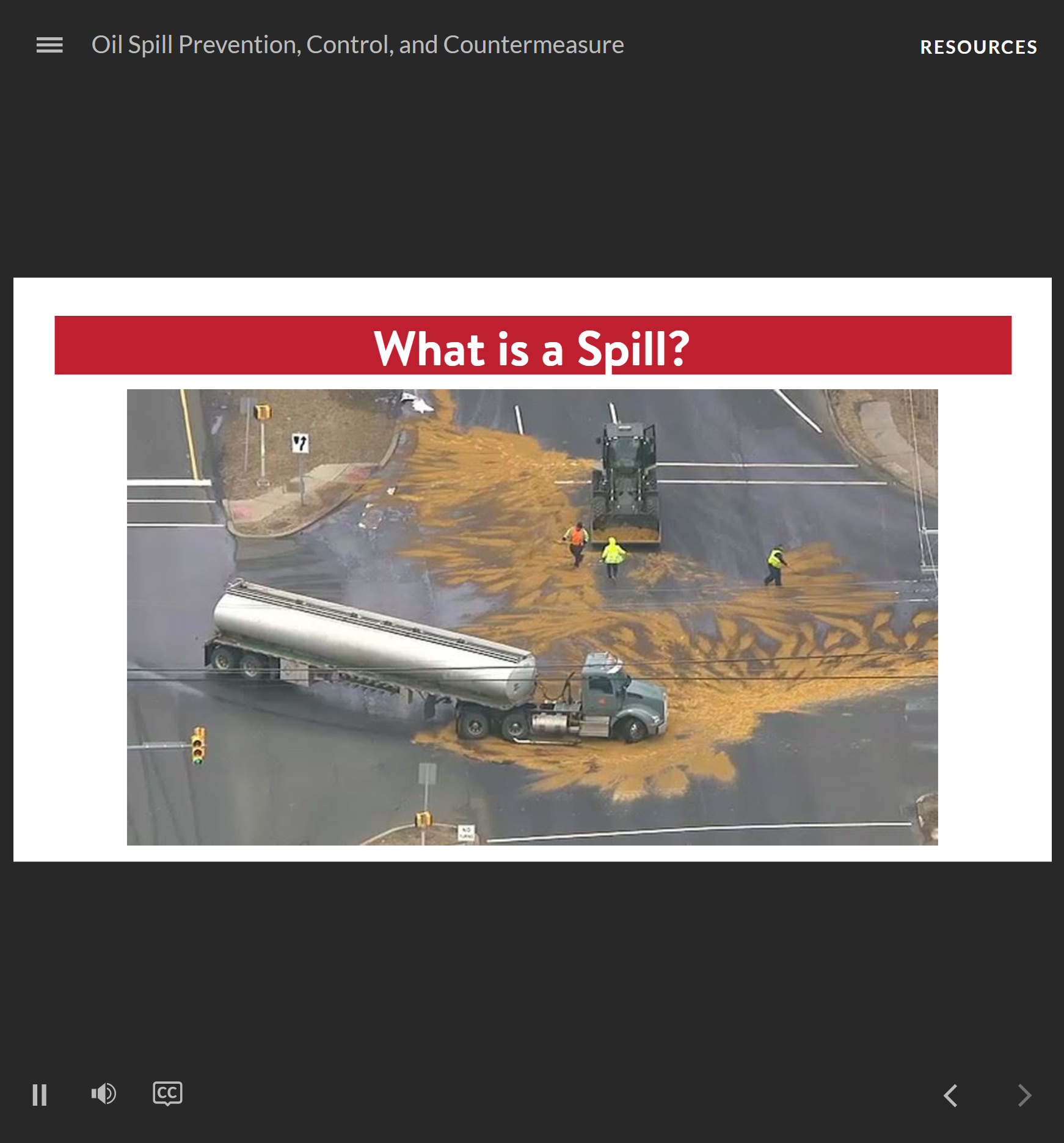
 This course covers the harmful effects of spilled oil and regulations for oil pollution prevention. The purpose and requirements of a SPCC Plan, procedures to prevent spills, and measures for stopping a spill from reaching the environment.
This course covers the harmful effects of spilled oil and regulations for oil pollution prevention. The purpose and requirements of a SPCC Plan, procedures to prevent spills, and measures for stopping a spill from reaching the environment. -
Sale!

 The course covers workplace eye hazards, PPE used to protect against them, and proper fit and care of PPE.
The course covers workplace eye hazards, PPE used to protect against them, and proper fit and care of PPE. -
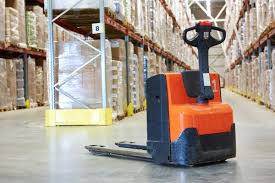
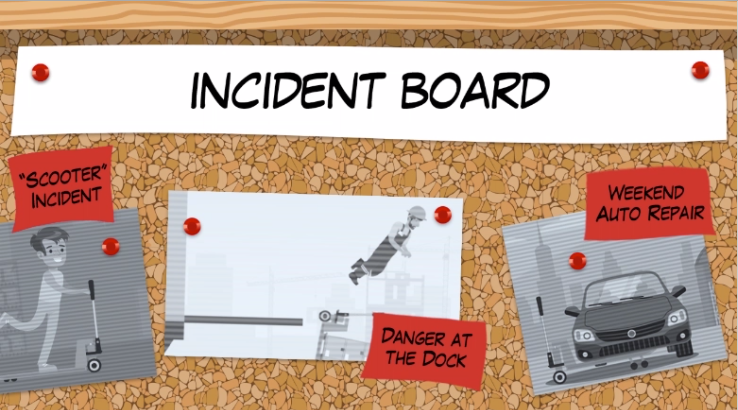 Common hazards associated with pallet jack operation include falling objects (struck by hazards). Loads can fall, and operators can too. If you move a loaded pallet jack too quickly, over uneven floors, or on inclines, the load may topple. You could be injured if the load falls, and the load and/or the workplace may be damaged. Straining to move a stuck pallet jack or failing to maintain control on an incline can cause the operator to slip and fall. This lesson focuses on the safe operation of both manual and powered hydraulic pallet jacks.
Common hazards associated with pallet jack operation include falling objects (struck by hazards). Loads can fall, and operators can too. If you move a loaded pallet jack too quickly, over uneven floors, or on inclines, the load may topple. You could be injured if the load falls, and the load and/or the workplace may be damaged. Straining to move a stuck pallet jack or failing to maintain control on an incline can cause the operator to slip and fall. This lesson focuses on the safe operation of both manual and powered hydraulic pallet jacks. -

 Accidents and injuries have both a human and a business cost, so it is advantageous for employees to practice safe behaviors and mitigate unsafe behaviors in the workplace. This lesson introduces behavior-based safety concepts to employees and creates awareness around what influences employees to change unsafe behaviors before an accident or injury happens.
Accidents and injuries have both a human and a business cost, so it is advantageous for employees to practice safe behaviors and mitigate unsafe behaviors in the workplace. This lesson introduces behavior-based safety concepts to employees and creates awareness around what influences employees to change unsafe behaviors before an accident or injury happens. -

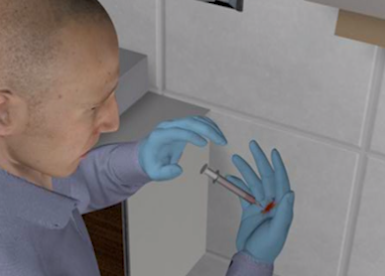 Bloodborne pathogens are viruses carried in human blood and other body fluids that cause disease in people. There are many different bloodborne pathogens, including malaria and syphilis, but the human immunodeficiency virus (HIV), hepatitis B (HBV), and hepatitis C (HCV) viruses, which can each lead to liver cancer, pose the most serious threat of workplace exposure. Perhaps no other profession is more at risk of the hazards posed by bloodborne pathogens than the medical profession, but that’s not to say that awareness and prevention measures shouldn’t be prevalent in all workplaces, because the price of ignorance can be very costly and simple understanding of some bloodborne pathogen basics, really can save lives. The goal of this training course is to educate employees to minimize their exposure to bloodborne pathogens.
Bloodborne pathogens are viruses carried in human blood and other body fluids that cause disease in people. There are many different bloodborne pathogens, including malaria and syphilis, but the human immunodeficiency virus (HIV), hepatitis B (HBV), and hepatitis C (HCV) viruses, which can each lead to liver cancer, pose the most serious threat of workplace exposure. Perhaps no other profession is more at risk of the hazards posed by bloodborne pathogens than the medical profession, but that’s not to say that awareness and prevention measures shouldn’t be prevalent in all workplaces, because the price of ignorance can be very costly and simple understanding of some bloodborne pathogen basics, really can save lives. The goal of this training course is to educate employees to minimize their exposure to bloodborne pathogens. -

 This lesson covers the required awareness training on the occupational hazards common to the handling and use of chemicals, measures you can take to protect yourself from chemical hazards, safe practices for chemical storage and waste disposal, and the correct response to emergency situations involving chemical spills. This lesson does not cover information related to radiological agents, explosives, and biohazardous/infectious agents.
This lesson covers the required awareness training on the occupational hazards common to the handling and use of chemicals, measures you can take to protect yourself from chemical hazards, safe practices for chemical storage and waste disposal, and the correct response to emergency situations involving chemical spills. This lesson does not cover information related to radiological agents, explosives, and biohazardous/infectious agents. -
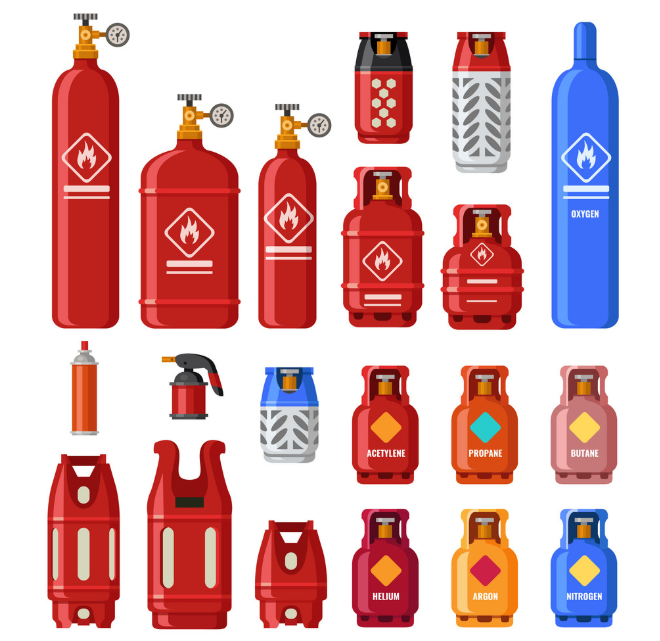 In order to recognize the hazards posed by compressed gas cylinders, you must first be able to recognize the specific parts of the cylinder and have a general knowledge of how these things work. Compressed gas cylinders can pose the hazard of an explosion when the metal pressure vessel fails. A common factor in that scenario is the misuse or abuse of the cylinder or valve while it is under pressure. Another hazard is the sudden release of pressure from the cylinder, as mentioned above. The purpose of this lesson is to address the hazards inherent in compressed gas and provide best practices for using, moving, and storing compressed gas containers.
In order to recognize the hazards posed by compressed gas cylinders, you must first be able to recognize the specific parts of the cylinder and have a general knowledge of how these things work. Compressed gas cylinders can pose the hazard of an explosion when the metal pressure vessel fails. A common factor in that scenario is the misuse or abuse of the cylinder or valve while it is under pressure. Another hazard is the sudden release of pressure from the cylinder, as mentioned above. The purpose of this lesson is to address the hazards inherent in compressed gas and provide best practices for using, moving, and storing compressed gas containers.



